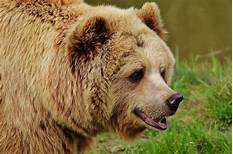Can Wild Dogs Be Pets?
Wild dogs, also known as wolves, coyotes, jackals, and dingoes, are captivating creatures that often evoke curiosity and fascination among people. While their wild nature and instincts make them intriguing, many wonder if these animals can be domesticated and kept as pets.

The Challenges of Owning a Wild Dog as a Pet
1. Instinctive Differences: Wild dogs have evolved to live in packs, relying on their natural instincts for hunting, scavenging, and territorial defense. These instincts are not easily suppressed and can pose significant challenges in a domestic setting.
2. Behavioral Issues: Wild dogs are not accustomed to human companionship and may exhibit unpredictable behaviors, including aggression, fearfulness, and destructive tendencies. Training and socialization are complex and often ineffective, making it difficult to establish a harmonious relationship with these animals.
3. Legal Implications: In many regions, owning a wild dog as a pet is illegal or heavily regulated. Local authorities and wildlife organizations may have strict guidelines and restrictions in place to protect public safety and preserve the natural balance of ecosystems.
The Importance of Conservation and Preservation
1. Endangered Species: Many wild dog species are facing population declines due to habitat loss, human-wildlife conflict, and illegal trade. Keeping wild dogs as pets contributes to the demand for these animals, potentially fueling illegal activities and harming their populations.
2. Ecological Balance: Wild dogs play crucial roles in maintaining ecological stability. They help regulate prey populations, control rodent infestations, and maintain biodiversity. Removing them from their natural habitats can disrupt delicate ecosystems and have unintended consequences.
3. Educational Value: Wild dogs offer valuable opportunities for learning and conservation awareness. Observing wild dogs in their natural environments or through reputable educational programs can foster appreciation for wildlife and promote responsible stewardship of our planet.
Alternatives to Owning a Wild Dog as a Pet
1. Ethical Pet Ownership: Consider adopting a domesticated animal from a shelter or rescue organization. These animals are well-suited for life with humans and can bring joy and companionship to your home.
2. Wildlife Conservation: Support wildlife conservation efforts by donating to reputable organizations, participating in volunteer activities, and advocating for policies that protect wild dogs and their habitats.
3. Educational Experiences: Visit wildlife sanctuaries, zoos, or educational centers that provide opportunities to observe and learn about wild dogs in a safe and ethical manner.
In conclusion, while the allure of wild dogs as pets may be strong, it is crucial to recognize the challenges and ethical considerations associated with owning these animals. By choosing alternative ways to appreciate and support wild dogs, we can ensure their well-being, preserve ecosystems, and foster a harmonious relationship between humans and wildlife.
Declaration: All article resources on this website, unless otherwise specified or labeled, are collected from online resources. If the content on this website infringes on the legitimate rights and interests of the original author, you can contact this website to delete it.




